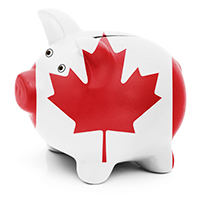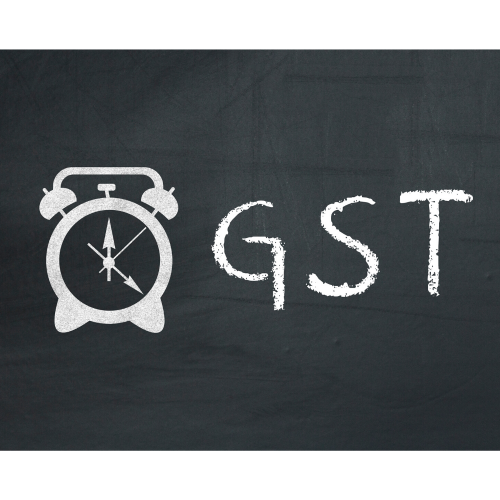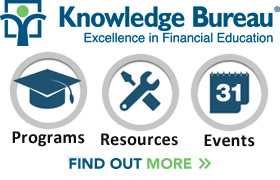
Immediate Expensing Rules: Good Tax Policy?
Over the course of the last two federal budgets (April 16, 2024 and November 4, 2025), the rules for claiming Capital Cost Allowance (CCA) have been uncertain. The proposal to extend immediate expensing rules for certain acquired assets were paused for over a year and then re-introduced in a series of four complex measures which together with new rules for Scientific Research and Experimental Development have become known as the “Productivity Super-Deduction”. A backdrop appears below. The key question: will this complexity be effective as an economic stimulator?Tax Evasion Drama: Recent CRA Prosecutions
 Did you know the CRA conducts approximately 350,000 audits and reviews on an annual basis? This means there’s about a one in ten chance that your clients will be audited or reviewed by CRA, in any given year. Now, CRA- initiated reviews will be enhanced by AI profiling. It’s critical for you to insist on pertinent tax information so you can help clients avoid audit and tax evasion charges in particular. It’s very expensive, as a few recently prosecuted taxpayers just found out:
Did you know the CRA conducts approximately 350,000 audits and reviews on an annual basis? This means there’s about a one in ten chance that your clients will be audited or reviewed by CRA, in any given year. Now, CRA- initiated reviews will be enhanced by AI profiling. It’s critical for you to insist on pertinent tax information so you can help clients avoid audit and tax evasion charges in particular. It’s very expensive, as a few recently prosecuted taxpayers just found out:
Intergenerational Wealth Transfer Needs: From Financial Advice to Wealth Stewardship
 Driven by the massive intergenerational wealth transfer occurring across North America, today’s tax and financial services clients are asking for more than product recommendations or tax preparation. They want clarity, confidence, and leadership. This shift is redefining the advisor’s role: professionals who move beyond transaction-based services to deliver a coordinated, tax-efficient, and values-based approach to managing wealth over a lifetime - and across generations – are the advisors of the future. How to recognize this professional? The RWM™ credential is behind their name.
Driven by the massive intergenerational wealth transfer occurring across North America, today’s tax and financial services clients are asking for more than product recommendations or tax preparation. They want clarity, confidence, and leadership. This shift is redefining the advisor’s role: professionals who move beyond transaction-based services to deliver a coordinated, tax-efficient, and values-based approach to managing wealth over a lifetime - and across generations – are the advisors of the future. How to recognize this professional? The RWM™ credential is behind their name.
Building Better Businesses Starts with Better Advisory Leadership
 Save the Date: CE Savvy Business Builder Summit, March 25, 2026 | Virtual | 8:15 AM – 1:30 PM CT. Are you growing your practice? Perhaps you are helping your clients grow their businesses better? Small business owners face relentless pressure - from rising costs and labour challenges to tax complexity, succession uncertainty, digital disruption and for some, quite simply the basics: how to lead, how to sell, and how to make decisions based on their financial statements. If this resonates, read on about a unique business education program geared at small to medium sized business owners and a new live virtual summit.
Save the Date: CE Savvy Business Builder Summit, March 25, 2026 | Virtual | 8:15 AM – 1:30 PM CT. Are you growing your practice? Perhaps you are helping your clients grow their businesses better? Small business owners face relentless pressure - from rising costs and labour challenges to tax complexity, succession uncertainty, digital disruption and for some, quite simply the basics: how to lead, how to sell, and how to make decisions based on their financial statements. If this resonates, read on about a unique business education program geared at small to medium sized business owners and a new live virtual summit.
The “New” Canada Groceries Essentials Benefit
 We all know the price of groceries has risen faster than most incomes. Given that, and the promise to address affordability in the last election, the federal government announced an enhancement to the existing GST/HST Credit including a one time top-up. Recall, this has been done before during the pandemic. However, buried in this announcement was an important 2025 tax filing change, as well, another example of “tax change by news release” that makes complicates tax compliance. Here’s what you need to know:
We all know the price of groceries has risen faster than most incomes. Given that, and the promise to address affordability in the last election, the federal government announced an enhancement to the existing GST/HST Credit including a one time top-up. Recall, this has been done before during the pandemic. However, buried in this announcement was an important 2025 tax filing change, as well, another example of “tax change by news release” that makes complicates tax compliance. Here’s what you need to know:
GST Announcements Affect Financial Services
 Starting July 1, 2026 mutual fund agents must register and collect the GST/HST on trailing commissions earned if they exceed $30,000 (the small supplier threshold). This news, provided only to “relevant stakeholders” is far reaching and still open to consultation. It may not, in the end, result in a revenue gain for the government, as input tax credits will be claimable. But it will bring to the fore a whole new base of taxfilers to audit in the future. Here’s what to know:
Starting July 1, 2026 mutual fund agents must register and collect the GST/HST on trailing commissions earned if they exceed $30,000 (the small supplier threshold). This news, provided only to “relevant stakeholders” is far reaching and still open to consultation. It may not, in the end, result in a revenue gain for the government, as input tax credits will be claimable. But it will bring to the fore a whole new base of taxfilers to audit in the future. Here’s what to know:


